Chinese Lantern Festival can be traced back to 2,000 years ago. There are many stories about its origin. Here are two of the most popular ones.中国的元宵节可以追溯到两千年前。关于它的起源有很多传说,以下是最广为流传的两个: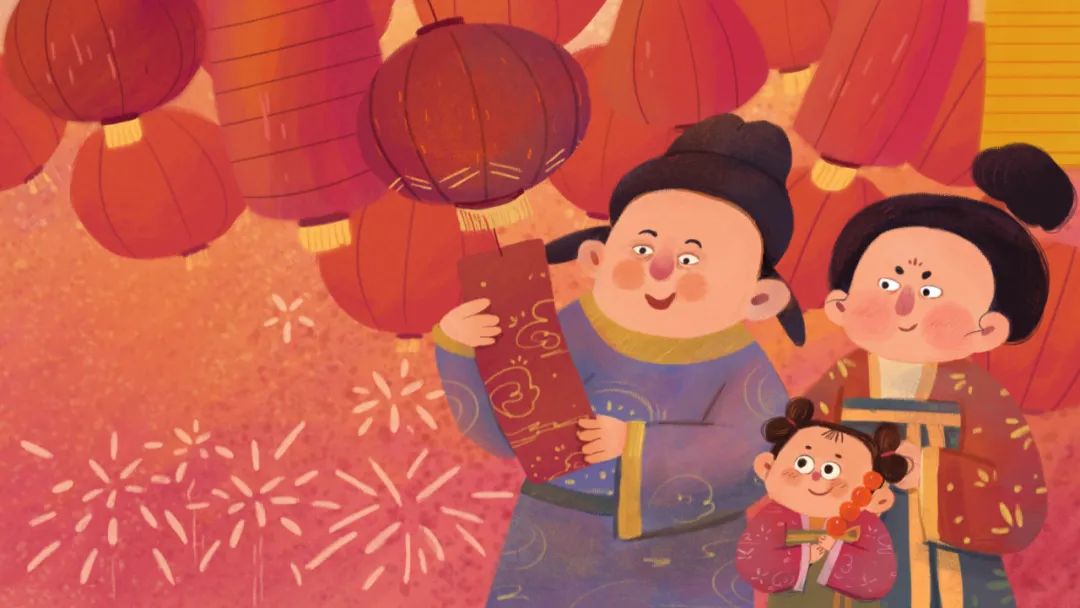
Story One: A Buddhist Celebration Han Mingdi, the emperor of the Early Eastern Han Dynasty, was an advocate of Buddhism. He heard that some monks lit lanterns in their temples to show respect to Buddha on the fifteenth day of the first lunar month. Therefore, he ordered that all the temples, households, and royal palaces should light lanterns on that evening. This Buddhist custom gradually became a grand festival among the people of China.汉明帝是东汉之初的统治者,是佛教的倡导者。他听闻在农历正月十五,有些僧侣会在寺庙里点灯敬佛。于是,他下令所有的寺庙、住家和皇宫都要在正月十五那天点灯。慢慢地,这一佛教传统演变成中国人的一个盛大节日。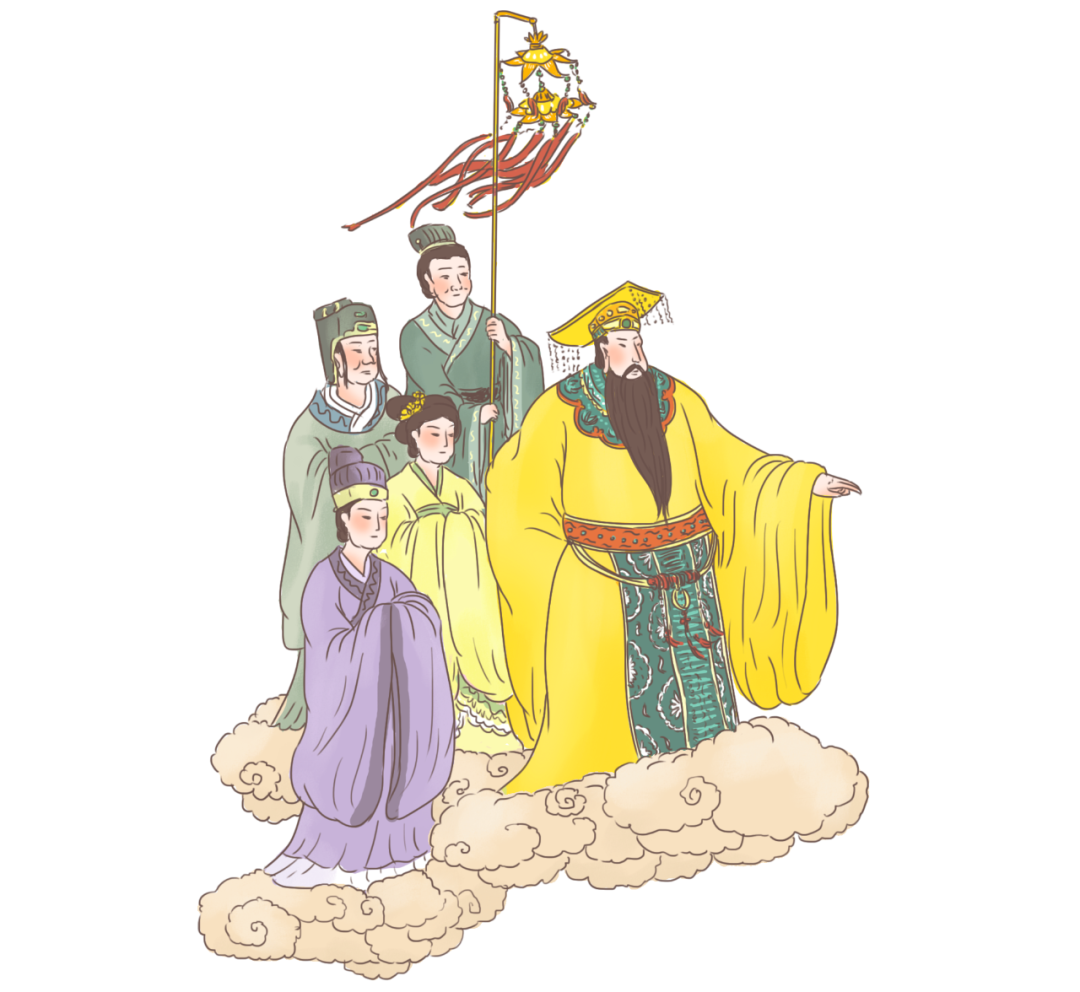
Story Two: A Trick Played on the Jade Emperor A legend has it that the Jade Emperor's favorite crane was killed by some villagers. So, he decided to destroy the village with fire on the fifteenth day of the first lunar month. The Jade Emperor's daughter felt very sad about this and warned the villagers about what was going to happen.传说,玉皇大帝最喜爱的一只仙鹤被一些村民杀死了。所以,他决定在正月十五这天火烧这个村庄。玉皇大帝的女儿对此感到很难过,于是提醒村民们将要发生的事。Then, a wise man advised the villagers to hang red lanterns to give the Jade Emperor the impression that the village was already on fire. The emperor was fooled and the village survived. Hence this tradition of hanging red lanterns on the fifteenth day of the first lunar month has continued until the present time.然后,一位智者建议村民们挂上红灯笼,给玉皇大帝一个村子已经着火了的假象。玉皇大帝果真被骗了,村子从而也保住了。由此,正月十五挂红灯笼的传统一直延续到现在。How Do Chinese Celebrate the Lantern Festival?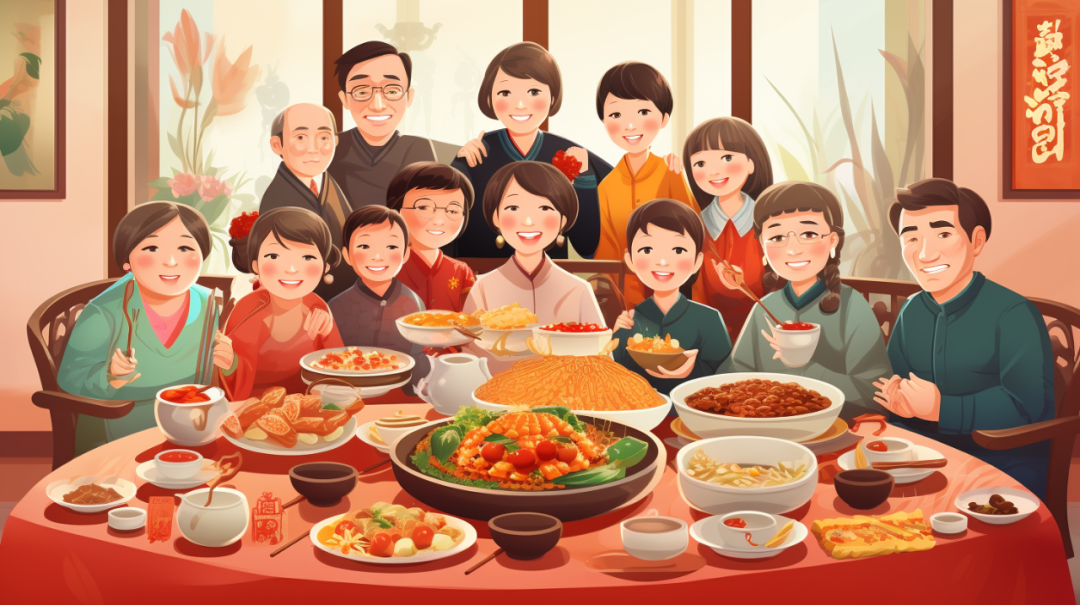
Lighting and Watching Lanterns
点灯赏灯
Lighting and appreciating lanterns is the main activity of the Lantern Festival. In ancient times, the lanterns were fairly simple, and only the emperor and noblemen had large and ornate ones. In modern times, lanterns have been embellished with many complex designs.点灯和赏灯是元宵节的主要活动。在古代,灯笼相当简单,只有皇帝和贵族才有大而华丽的灯笼。在现代,灯笼饰有许多复杂的设计。The traditional lanterns are almost always red to invoke good fortune. The lanterns can symbolize the people letting go of their past selves and getting new ones. Lighting lanterns symbolizes “illuminating the future”. It is a way for people to pray that they will have smooth futures and to express their best wishes for their families.传统的灯笼几乎都是红色的,以祈求好运。灯笼可以象征着人们放弃旧我,获得新我。点灯象征着“照亮未来”。这是人们祈求自己未来一帆风顺、对家人表达美好祝愿的一种方式。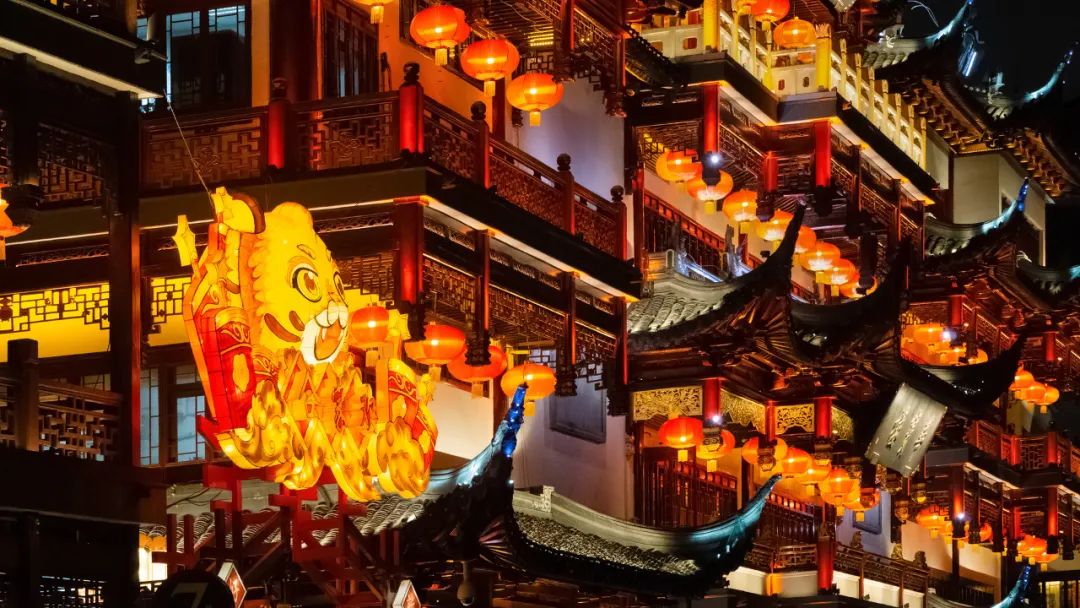
During the Lantern Festival, many big lantern fairs are held in China, such as Qinhuai International Lantern Festival in Nanjing and Shanghai Yuyuan Lantern Festival. The lanterns’ artwork vividly shows traditional Chinese culture.在元宵节期间,中国会举行许多大型的灯会,如南京的秦淮国际灯会和上海的豫园灯会。灯笼艺术品生动地展现了中国的传统文化。Guessing Lantern Riddles
猜灯谜
Guessing lantern riddles started in the Song Dynasty and it is one of the most important and popular activities of the Lantern Festival. Lantern owners write riddles on paper notes and paste them on the colorful lanterns. People crowd round to guess the riddles.猜灯谜始于宋代,是元宵节最重要、最受欢迎的活动之一。灯笼的主人把灯谜写在纸条上,贴在五颜六色的灯笼上,然后人们围过来猜灯谜。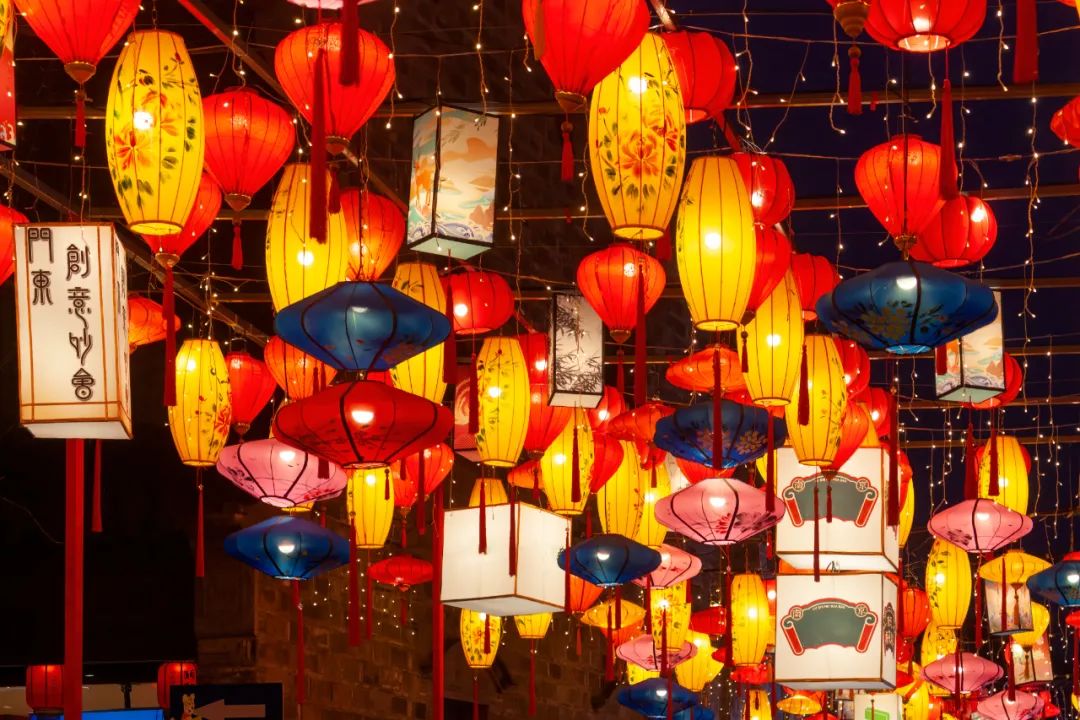
Eating Tangyuan / Yuanxiao
吃汤圆 / 元宵
The most traditional food eaten at Chinese Lantern Festival is tangyuan, also called yuanxiao in northern China. They are ball-shaped dumplings, made of glutinous rice flour and stuffed with different fillings, such as brown sugar, sesame seeds, peanuts, walnuts and bean paste or a combination of ingredients.元宵节最传统的食物是汤圆,北方也叫元宵。它们是球形的汤团,由糯米粉制成,里面塞满了不同的馅料,如红糖、芝麻、花生、核桃、豆沙或多种材料的混合。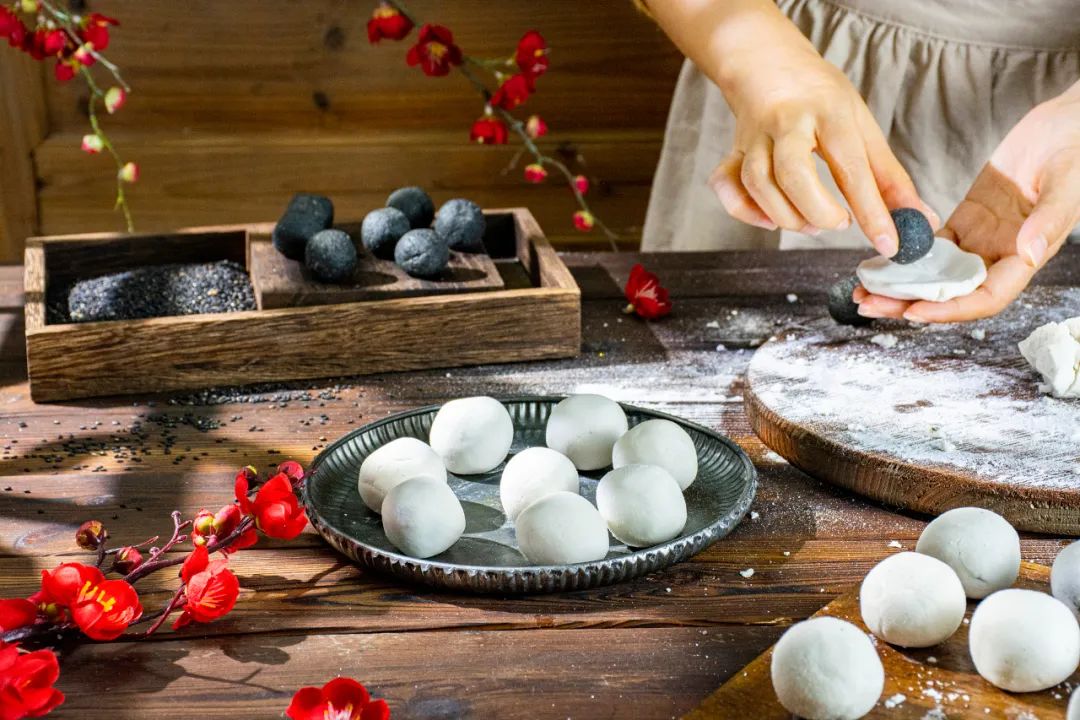
Its round shape symbolizes wholeness and completeness. Its sweet taste symbolizes a sweet and happy life. Tangyuan sounds similar to tuanyuan, which “reunion”. It, therefore, symbolizes family reunion, harmony and happiness.它的圆形象征着圆满;它的甜味象征着甜蜜和幸福的生活。汤圆听起来和团圆很像,意思是“团聚”。因此,汤圆象征着合家团圆、其乐融融。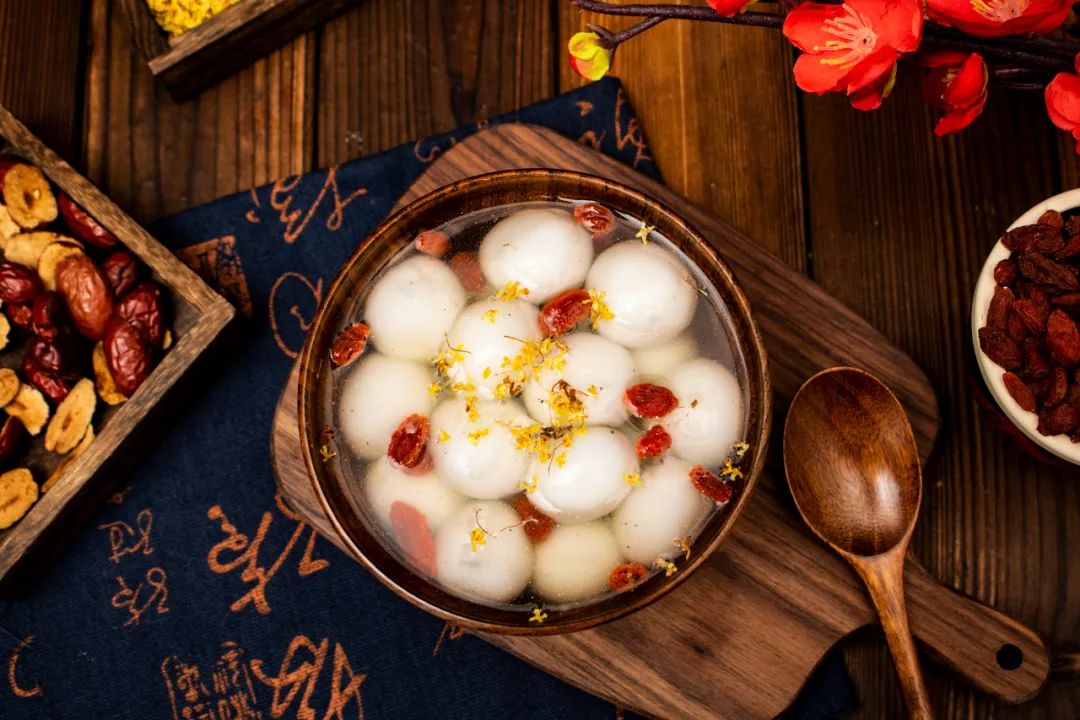
It is believed that the custom of eating tangyuan originated during the Song Dynasty era, and became popular during the Ming and Qing dynastic periods.人们认为,吃汤圆的习俗起源于宋代,并在明清时期流传开来。Watching Dragon Dances and Lion Dances
看舞龙和舞狮
As two of the most outstanding traditional folk dances in China, dragon and lion dances are common during the Lantern Festival. Chinese people traditionally regard the lion as a symbol of bravery and strength and believe that its appearance can drive away evil and protect people and their livestock. Chinese people worship the dragon and regard it as a symbol of good luck.舞龙和舞狮是中国最令人瞩目的两种传统民间舞蹈,在元宵节期间很常见。中国人传统上将狮子视为勇敢和力量的象征,相信它的出现可以驱除邪恶、保护人畜。中国人崇拜龙,视其为好运的象征。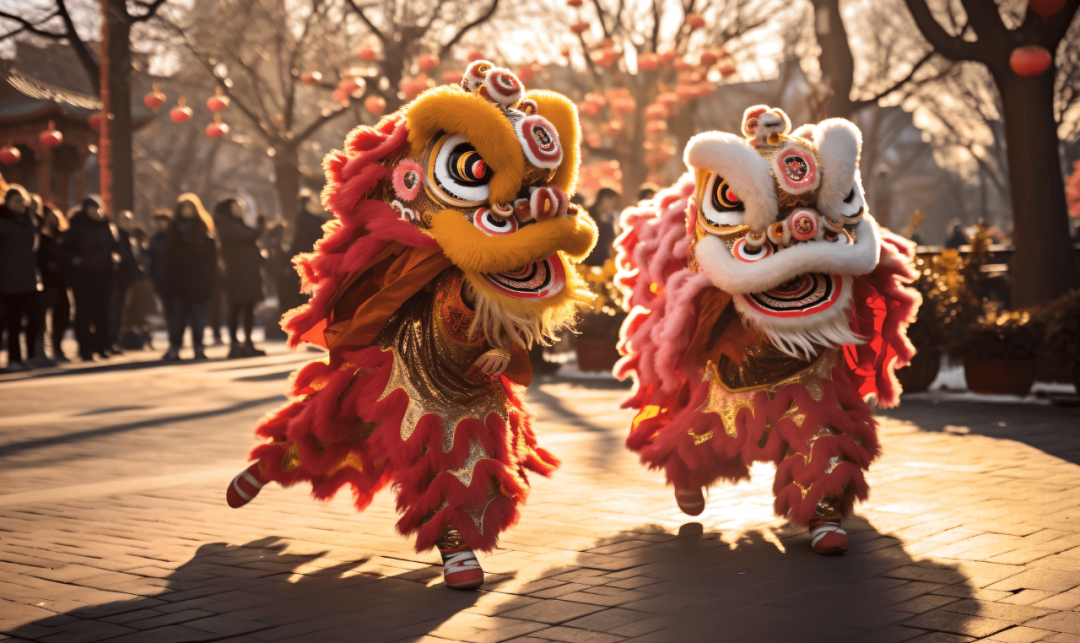
lantern [ˈlæntən] n [C] 灯笼Buddhist [ˈbʊdɪst] adj 佛教的emperor [ˈempərə(r)] n [C] 皇帝Buddhism [ˈbʊdɪzəm] n [U] 佛教Buddha [ˈbʊdə] n 佛陀(佛教创始人)glutinous [ˈɡluːtənəs] adj 很黏的sesame [ˈsesəmi] n [U] 芝麻peanut [ˈpiːnʌt] n [C] 花生walnut [ˈwɔːlnʌt] n [C] 核桃reunion [ˌriːˈjuːniən] n [U] 团圆;团聚harmony [ˈhɑːməni] n [U] 融洽;和谐假如你是某中学学生Lily,上周日你参加了学校举行的元宵节 (the Lantern Festival) 庆祝活动,请给你的英国朋友Peter写一封信,分享你这次的活动经历。内容包括:1. 活动内容:吃汤圆,赏花灯,猜灯谜,舞龙舞狮(the dragon and lion dance)等;Long time no see! In your last letter, you showed great interest in Chinese traditional festivals. Now I am writing to share with you the celebration of Lantern Festival held in our school last Sunday.
On Sunday evening. After we finished the tangyuan prepared for us in the school restaurant, I walked around the school campus with other students to enjoy the various lanterns made by the students themselves. Besides, many students gathered under the lanterns to do word puzzles. What impressed me most was the dragon and lion dance performance on the playground, which made me unwilling to leave for a long time.
This activity not only enriched our after-school life, but also gave us a good chance to understand traditional Chinese festivals.
Hope you will come to China next year and we celebrate the Lantern Festival together.
内容来源于网络
本文不用于任何商业目的
如涉及内容、版权或其它问题,请及时与我们联系,我们将立即更正或删除相关内容
版权声明:本文内容由互联网用户自发贡献,该文观点仅代表作者本人。本站仅提供信息存储空间服务,不拥有所有权,不承担相关法律责任。如发现本站有涉嫌抄袭侵权/违法违规的内容, 请发送邮件至23467321@qq.com举报,一经查实,本站将立刻删除;如已特别标注为本站原创文章的,转载时请以链接形式注明文章出处,谢谢!

























